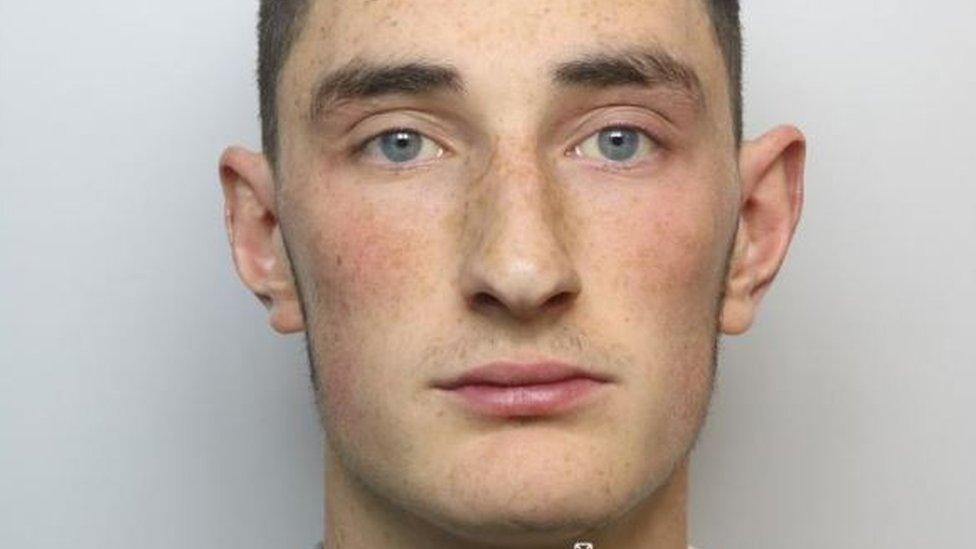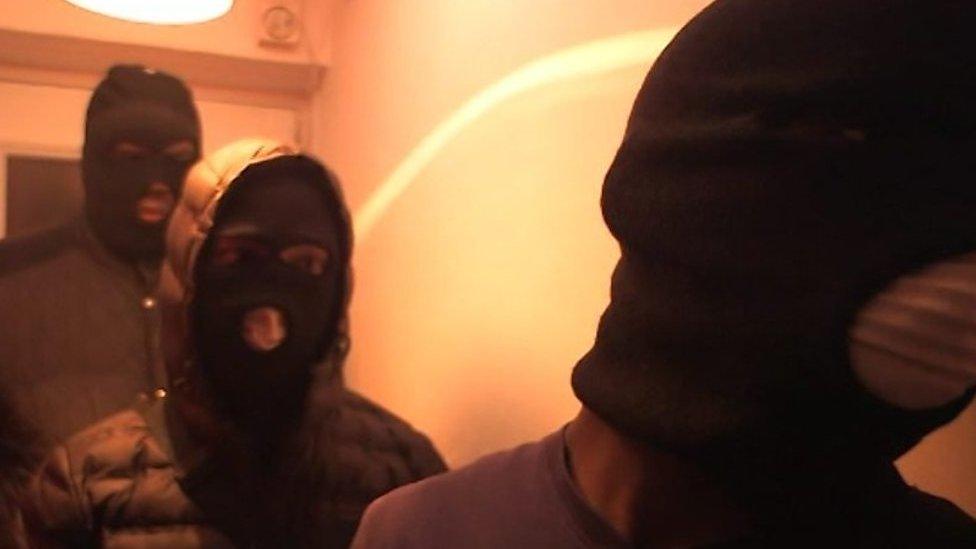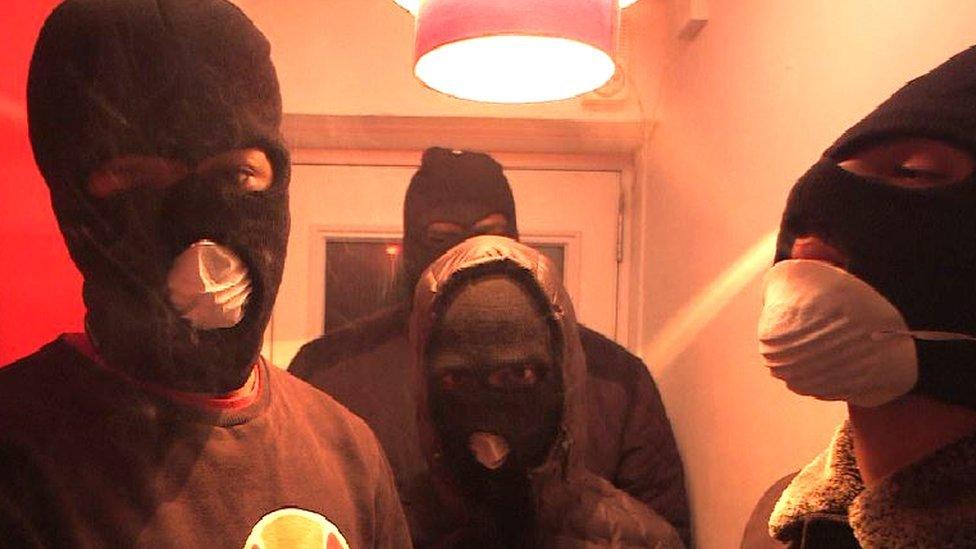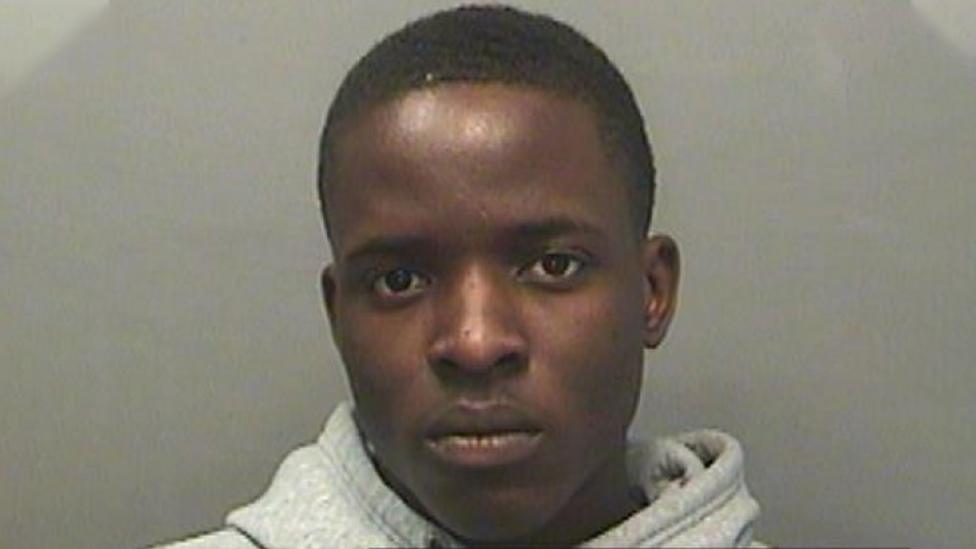National Crime Agency: 100 county lines networks in Wales
- Published
What is "county lines"?
Around 100 "county lines" networks are supplying drugs into Welsh communities, according to the director general of the National Crime Agency (NCA).
Lynne Owens said officers were working hard to tackle them, but more resources were needed to combat the volume of serious and organised crime.
Barnardo's Cymru said vulnerable young people were being groomed by gangs.
UK security minister Ben Wallace said funding for policing and crime prevention had increased.
County lines sees gangs from cities such as London, Liverpool and Birmingham sell drugs in suburbs, towns and coastal areas, often recruiting local people, including teenagers.
Mr Wallace has been in Newport to discuss the recently launched serious and organised crime strategy, external, alongside representatives from the Welsh Government and police forces.
He warned high-level criminals were as active in rural villages as they were in cities.
The Home Office announced on Wednesday that South Wales Police would receive an extra £1.2m from the £100m Serious Violence Fund.
But Ms Owens told BBC Radio Wales' Good Morning Wales programme: "We know the whole of the public sector has been impacted by a reduction in funding."
"The volume and complexity of serious and organised crime is changing and therefore that needs investing in local police forces, in a regional capacity and the National Crime Agency."

Harrison Coe from Birmingham was jailed for taking a 14-year-old boy to sell drugs in Llanelli
The Home Office event in Newport also highlighted early intervention work in Wales aimed at diverting young people away from organised crime, including a project led by Barnardo's in the city.
Sarah Wallace, director of Barnardo's Cymru, said: "There are far fewer diversionary and support activities in our communities, whether they be rural or cities, and things cost - so to go to do activities they often cost.
"We need to be able to provide those free activities for any child or young person to access of a weekend or evening and austerity is playing its part. Our communities, our families are struggling."
She said some of the most vulnerable young people in Wales, such as those not engaging in school, were being groomed into criminal activity.
Jess Sharma, children's services manager for Barnardo's, said there were factors such as exposure to domestic violence at home, poor mental health and school exclusions that were common to a number of the young people they had been working with.

Charities St Giles Trust and Barnardo's are also working with children of secondary-school age who have been identified as being at risk. Barnardo's also provides support for their families.
The Welsh Government said it was committed to making the country safer through joint action and said its Families First programme supports parents and guardians.
Asked whether austerity had contributed to a rise in youngsters vulnerable to grooming by criminal gangs, Mr Wallace said: "I don't necessarily accept the premise that has made more vulnerable people.
"We increased funding by £1bn into policing. We announced last week £200m of youth investment funding into prevention, so we hear where there are pressures and we move money to meet those pressures.
"We will be asking for more money [in the next spending review], alongside Welsh Government, to make sure we try and have the resource needed in the long term to meet the challenges."
- Published16 May 2018

- Published16 May 2018

- Published24 January 2019
